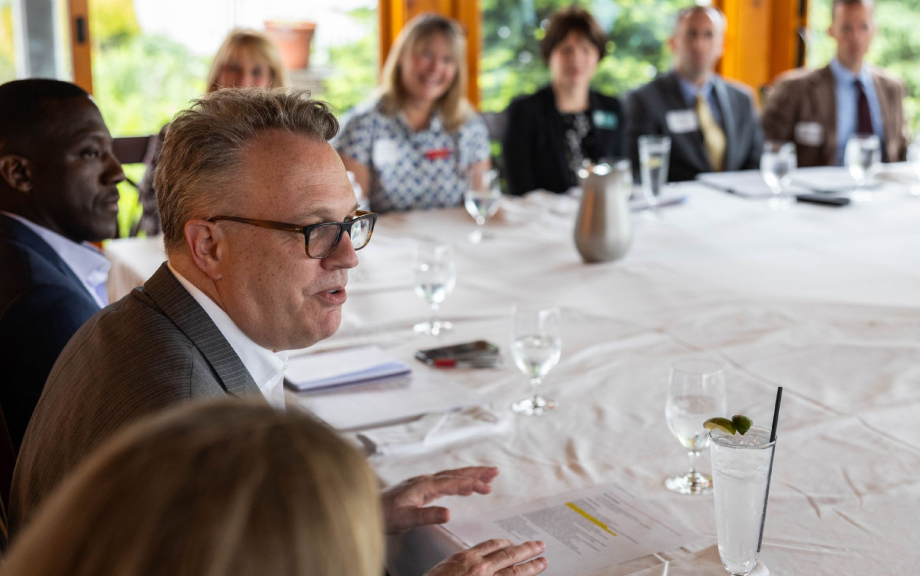
On our recent regional visit to New York’s North Country, we heard from stakeholders that delivering essential social services can be a major challenge due to the area’s vast geography and low population density, and that the nonprofit sector plays a critical role in addressing this issue. Building on our earlier report, this article examines how nonprofits support low- and moderate-income communities in both small towns and larger municipalities across the North Country.
Size and Scope
“The nonprofit and social services sector is a powerhouse in the North Country region,” said Cali Brooks, president of the Adirondack Foundation and a member of the New York Fed’s Community Advisory Group. Indeed, nonprofits employ more than 23,000 people in the North Country, according to a 2019 report from the Office of the New York State Comptroller, making it the second-largest employment sector in the region. By way of example, they account for 41.5% of employment in Franklin County and 30.6% in St. Lawrence County, the report said.
The region’s nonprofits are integral to industries such as healthcare, education, and social services, while institutions such as hospitals, nursing homes, libraries, and colleges form the backbone of communities. Beyond providing essential services, these entities contribute significantly to job growth in areas such as housing, food service, and healthcare, stakeholders said.
Partnerships
The strength of the sector notwithstanding, the sheer scale of the region presents difficulties in securing grants and financing for community projects in smaller towns and communities with limited resources. For this reason, organizations in the nonprofit sector have long recognized the need to partner with the business community, local and state governments, and one another. An excellent example is in the housing sector. As we have seen in many other parts of the Federal Reserve’s Second District, the region suffers from a lack of affordable housing. This shortage impedes economic growth and the delivery of services, among other effects, as employers find it difficult to find staff that can afford to live in their communities when commuting from other areas is not practical.
In Lake Placid, an innovative development was recently completed that offers middle-income housing for local workers. The land was donated, allowing the nonprofit developer to sell modular homes at the cost of construction. Beyond that project, there are efforts underway for local governments to partner with land trusts to preserve open space and set aside development clusters for housing.
Such collaboration extends across needs, including in delivering healthcare, providing affordable childcare, managing declining enrollments in schools, promoting workforce development, and addressing transportation challenges.
Civic Leadership
The North Country has a core group of highly engaged civic leaders who are working together to meet the needs of the region. That group was represented at our May 28 roundtable discussion in Lake Placid. What stood out in particular was the multiple roles that these leaders play, representing a variety of nonprofit and economic development interests. As one participant put it, “I wear so many hats that I have to check my name tag and see who I am representing today.” The members of this community know one another well, and their personal relationships offer the advantage of easy collaboration and ready support when challenges arise. The acknowledged drawback is the potential for burnout, given the high concentration of responsibilities across a range of areas.
Stakeholders expect that nonprofits will remain a strong suit for the region as the economy evolves, with the sector continuing to play an essential role in supporting communities and contributing to growth.

Jack Gutt is head of the Communications & Outreach Group at the Federal Reserve Bank of New York.

Tony Davis is the director of community outreach and health in the Communications and Outreach Group at the New York Fed. He focuses on issues related to health and economic development.
Andrea Grenadier is an associate director of external engagement in the Communications and Outreach Group at the New York Fed.
The views expressed in this article are those of the contributing authors and do not necessarily reflect the position of the New York Fed or the Federal Reserve System.











